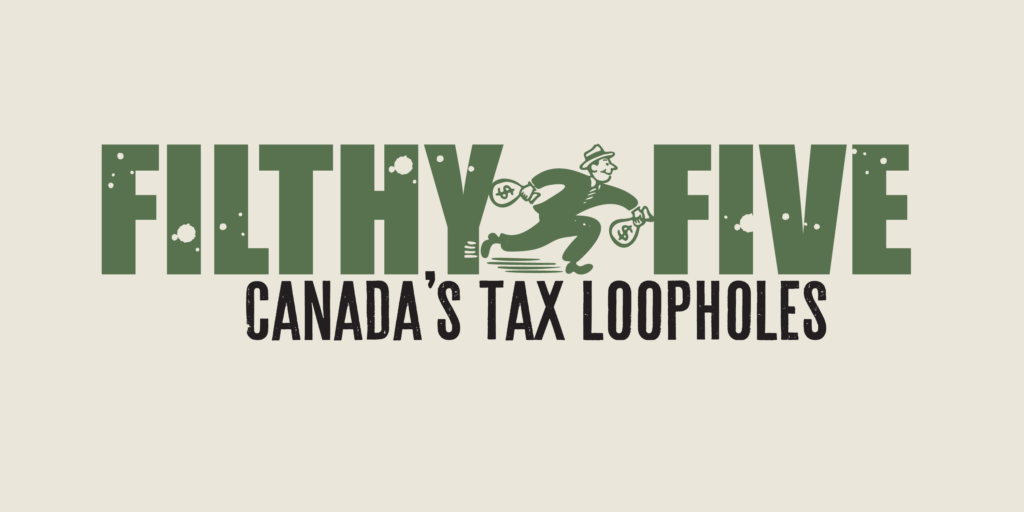The Paradise Papers are the latest leak to reveal the ways in which Canada’s tax system continues to benefit the wealthiest Canadians. Offshore tax havens are being used to avoid paying domestic tax on income and to simply store wealth in low tax countries. Loopholes in Canada’s domestic tax system contribute to gross inequities, providing wealthy Canadians with tax schemes that allow them to avoid paying their fair share. These tax loopholes directly contribute to growing inequality in Canada; allowing for the rich to get richer, while those with low to middle incomes are left behind. Tax reform is more urgent and necessary than ever.
Ahead of the 2018 federal budget, the Broadbent Institute has put forth recommendations for creating a more just and equitable Canada. These recommendations focus on closing tax loopholes and cracking down on offshore tax havens. This document outlines the ‘Filthy Five’ tax loopholes in Canada that must be closed. The revenue of these loopholes can be up to $12 billion, depending on current tax rates, and/or the amount of claims made by the groups exempted from our recommendations. This is money that should be used to pay for better
health and social programs for all Canadians.
Calls to Action
The Broadbent Institute calls on the federal government to crackdown on tax loopholes and offshore tax havens used by the country’s wealthiest Canadians.
These “Filthy Five” tax loopholes contribute to growing inequality in Canada and starve the government of the revenue much needed for health and social programs.
- Partial Inclusion of Capital Gains Loophole
- Employee Stock Option Loophole
- Business Entertainment Expense Loophole
- Dividend Gross-up and Tax Credit Loophole
- Offshore Tax Havens
‘Filthy Five: Canada’s Tax Loop Holes’ is licensed under CC BY-NC 4.0
